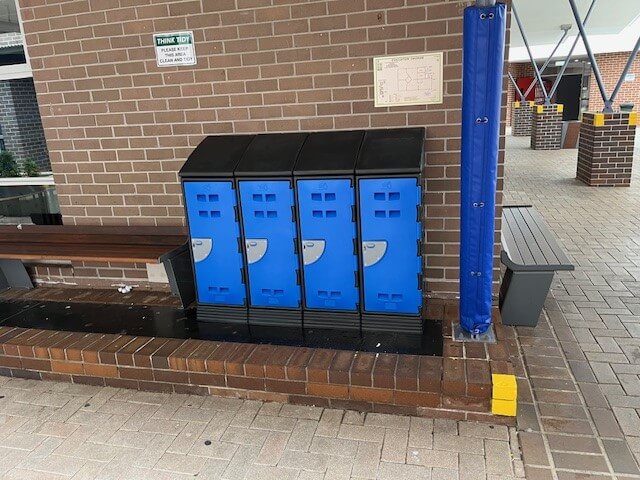
From ASTM B117 to CASS: Decoding the World of Salt Spray Testing
- Jan 09, 2025
- | 12
In industries where materials are exposed to corrosive environments, ensuring their durability is crucial. This is where salt spray chambers come into play. These testing instruments simulate accelerated corrosion conditions to evaluate the resistance of materials, coatings, and surface treatments. This blog explores the features, standards, and applications of salt spray chambers, including specialized models like the CASS salt spray chamber, compliance with ASTM B117, and insights into salt spray chamber prices.
What is a Salt Spray Chamber?
A salt spray chamber is a laboratory instrument designed to create a controlled environment for corrosion testing. It generates a fine mist of saline solution, exposing test specimens to harsh conditions. The process mimics the effects of prolonged exposure to marine, industrial, or polluted atmospheres, making it ideal for quality assurance in industries like automotive, aerospace, construction, and more.
Compliance with ASTM B117 Standard
The salt spray chamber ASTM B117 standard is the globally recognized benchmark for salt spray testing. Established by the American Society for Testing and Materials, it defines the parameters for conducting consistent and reliable corrosion tests.
Key Requirements of ASTM B117:
- Salt Solution: A 5% sodium chloride (NaCl) solution with pH levels between 6.5 and 7.2.
- Temperature: The chamber should maintain a temperature of 35°C ± 2°C (95°F ± 3.6°F).
- Fog Collection Rate: The mist density should ensure a collection rate of 1-2 mL/hour over a defined area.
- Test Duration: Duration varies depending on the material and industry standards, from hours to several weeks.
Compliance with ASTM B117 ensures that test results are reproducible and meet international quality benchmarks.
Features of Modern Salt Spray Chambers
Modern salt spray chambers offer advanced features for precise and efficient testing:
- Durable Construction:
- Made from corrosion-resistant materials like reinforced fiberglass or high-grade plastics to withstand saline environments.
- User-Friendly Controls:
- Digital interfaces for controlling temperature, mist density, and test duration.
- Versatility:
- Designed to accommodate various sample sizes and shapes.
- Specialized Variants:
- The CASS salt spray chamber (Copper Accelerated Acetic Acid Salt Spray) is used for testing highly durable coatings and materials.
- Transparent Covers:
- Allow easy observation of test samples without disrupting the environment inside.
Applications of Salt Spray Chambers
- Automotive Industry:
- Testing corrosion resistance of vehicle parts, including frames, bolts, and coatings.
- Marine Applications:
- Ensuring the durability of ship components and coatings exposed to saltwater.
- Aerospace Sector:
- Evaluating the performance of aircraft components under corrosive conditions.
- Construction Materials:
- Testing the longevity of outdoor structures and fittings.
- Electronics and Consumer Goods:
- Assessing the reliability of products exposed to harsh environments.
In industries where materials are exposed to corrosive environments, ensuring their durability is crucial. This is where salt spray chambers come into play. These testing instruments simulate accelerated corrosion conditions to evaluate the resistance of materials, coatings, and surface treatments. This blog explores the features, standards, and applications of salt spray chambers, including specialized models like the CASS salt spray chamber, compliance with ASTM B117, and insights into salt spray chamber prices.
Features of Modern Salt Spray Chambers
Modern salt spray chambers offer advanced features for precise and efficient testing:
- Durable Construction:
- Made from corrosion-resistant materials like reinforced fiberglass or high-grade plastics to withstand saline environments.
- User-Friendly Controls:
- Digital interfaces for controlling temperature, mist density, and test duration.
- Versatility:
- Designed to accommodate various sample sizes and shapes.
- Specialized Variants:
- The CASS salt spray chamber (Copper Accelerated Acetic Acid Salt Spray) is used for testing highly durable coatings and materials.
- Transparent Covers:
- Allow easy observation of test samples without disrupting the environment inside.
Salt Spray Chamber Manufacturers and Prices
Choosing a reliable salt spray chamber manufacturer is critical for ensuring accurate test results. Reputable manufacturers design chambers that comply with ASTM B117 and other international standards, providing robust equipment with warranties and after-sales support.
Factors Influencing Salt Spray Chamber Price:
- Size and Capacity: Larger chambers for industrial use cost more than compact models for laboratory testing.
- Technology: Advanced features like automated controls and multi-environment testing capabilities increase the price.
- Customization: Tailored chambers for specific applications may come at a premium.
- Brand Reputation: Established manufacturers with proven quality often charge higher prices.
Price Range:
- Small laboratory chambers: $2,000–$5,000
- Medium-sized models: $5,000–$10,000
- Large industrial chambers: $10,000–$20,000+
Conclusion
A salt spray chamber is an indispensable tool for industries aiming to ensure the durability and quality of their products. Whether testing compliance with ASTM B117 or utilizing advanced options like the CASS salt spray chamber, this equipment plays a pivotal role in corrosion resistance analysis. While salt spray chamber prices vary depending on features and size, investing in high-quality equipment from a reputable salt spray chamber manufacturer is crucial for reliable and consistent results.


2.jpeg)
4.jpg)

